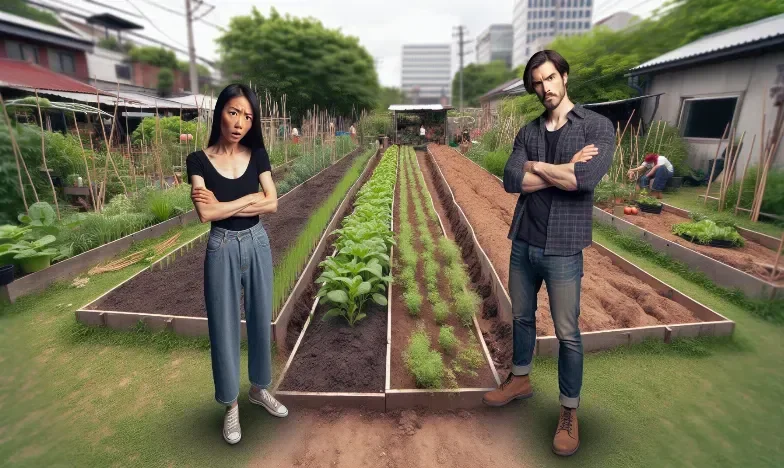“You Gave Us the Wrong Plot. The Soil is Terrible and Nothing Grows,” My Sister Said
When our mother passed away last year, my sister Harper and I inherited two adjacent plots in the local community garden. It was a bittersweet inheritance; our mother had loved gardening, and these plots were her pride and joy. Harper and I decided to keep the tradition alive, each taking responsibility for one of the plots.
At first, everything seemed fine. We both spent weekends at the garden, planting seeds and nurturing the soil. But as the months went by, Harper began to complain. “Victoria, you gave us the wrong plot. The soil is terrible and nothing grows,” she said one afternoon, her face flushed with frustration.
I looked over at her plot. It did seem less vibrant than mine, but I had put in a lot of effort to improve my soil. “Harper, I didn’t give us the plots. We chose them together,” I reminded her.
“But you knew more about gardening than I did. You should have warned me,” she retorted.
I sighed. “Harper, it’s not about who knew more. We both have to work on our plots. Maybe you just need to put in more effort.”
Harper’s complaints grew louder and more frequent. She insisted that we swap plots, claiming it was only fair since she had the worse one. But I was against it. I had invested so much time and energy into my plot, and it was finally starting to flourish.
One day, Harper showed up at my door with a determined look on her face. “Victoria, we need to talk,” she said.
“About what?” I asked, though I already knew the answer.
“The plots. It’s not fair that you get the good one while I’m stuck with the bad one,” she said.
“Harper, I’ve told you before, we chose them together. And I’ve worked hard on mine,” I replied.
“But it’s not just about hard work. The soil on my plot is terrible. Nothing grows no matter what I do,” she insisted.
I shook my head. “I’m sorry, Harper, but I’m not swapping plots with you.”
Harper’s face turned red with anger. “Fine,” she said through gritted teeth. “But don’t expect me to help you with anything anymore.”
From that day on, Harper stopped coming to the garden. Her plot became overgrown with weeds, and it was clear she had given up on it entirely. Meanwhile, I continued to work on my plot, but it wasn’t the same without her.
Months passed, and the tension between us grew. We barely spoke, and when we did, it was always about the garden plots. Our once close relationship had deteriorated into a bitter rivalry.
One evening, I received a call from Nathan, a fellow gardener in the community. “Victoria, you need to come to the garden,” he said urgently.
When I arrived, I saw Harper standing by her plot, tears streaming down her face. “What’s wrong?” I asked, rushing over to her.
“It’s ruined,” she sobbed. “Everything is ruined.”
I looked at her plot and saw that someone had vandalized it, tearing up plants and scattering debris everywhere. “Who did this?” I asked, horrified.
“I don’t know,” she cried. “But it’s over now. There’s no point in trying anymore.”
I felt a pang of guilt as I looked at my flourishing plot next to her destroyed one. Maybe if I had agreed to swap plots, things would have been different. But it was too late now.
Harper left the community garden for good after that incident. Our relationship never recovered from the strain caused by the garden plots. We drifted apart, each of us nursing our own wounds and regrets.
In the end, the garden that was supposed to bring us closer together only drove us further apart.
